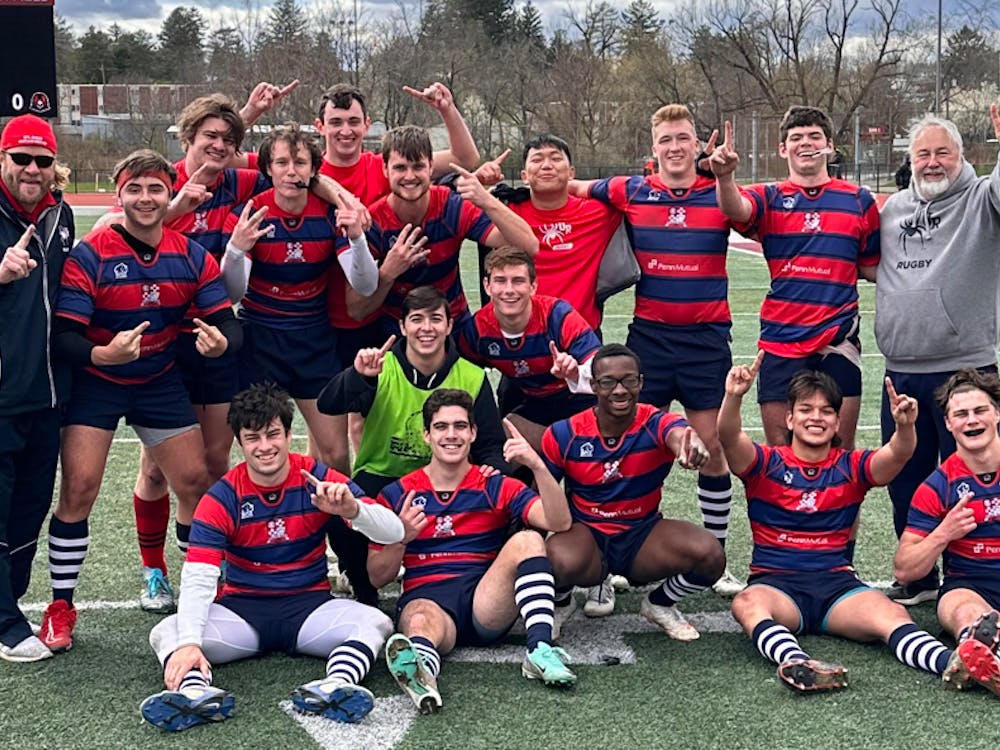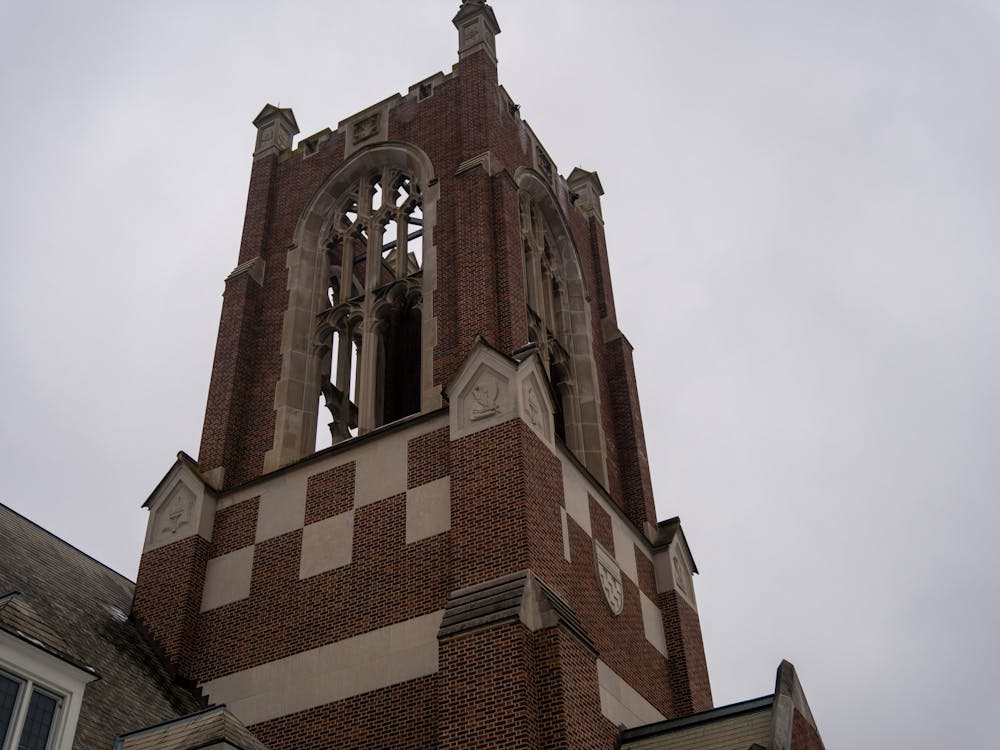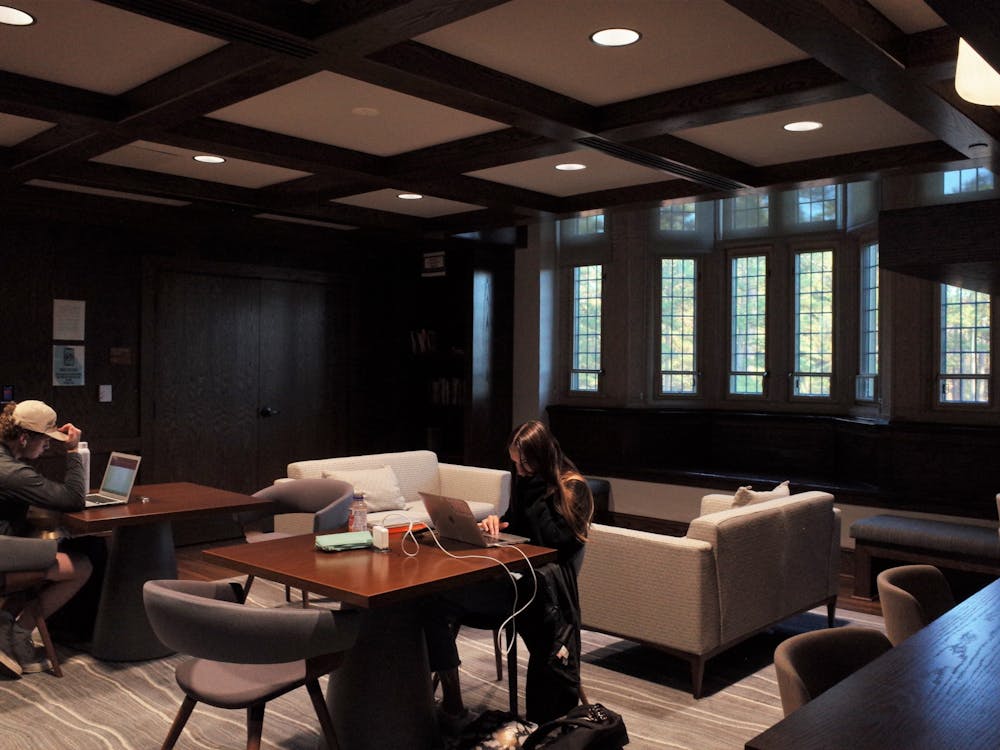The Modlin Center for the Arts' exhibit of Robert Crumb's comics and its sponsorship of his appearance at the Carpenter Theatre on Oct. 27, have stirred a heated debate among faculty and students.
Timothy Patterson, a Richmond College senior, launched a campus-wide debate when he discussed Crumb's appearance in a posting on The Collegian's Web site. Although he did not attend the conversation, Patterson felt compelled to speak out, he said.
In his posting, Patterson quoted Crumb's speech: "Every woman has a rape fantasy. Every man deep down ... hates women."
The issue does not concern the first amendment, Patterson said.
"No one is saying that Crumb doesn't have a right to draw what he draws," Patterson said. "The issue is whether it is appropriate for our university to endorse him."
Patterson started a Facebook group, "Protest Crumb at UR," which had 86 members as of Nov 4. He also opened a Google account, protestcrumb@gmail.com, for students to send their grievances, he said.
This year, Bertram Ashe, an associate professor of English and American studies, assigned "My Troubles with Women," a documentary, "Crumb," and Crumb's appearance at the Carpenter Theatre to his American Misfit: Geek Literature and Culture class.
Patterson's posting questioned Ashe's academic freedom to assign this material to his class.
"["My Troubles with Women"] features a number of appalling depictions, such as the raping of a little girl, forced oral sex with a woman chained to a desk, and a picture of Crumb sitting on top of a pile of drugged, raped women dressed as a king," Patterson wrote in his posting.
Ashe thought Crumb's work, the documentary and his appearance in Richmond fit well into the semester-long discussion of geeks and nerds in his class.
It is easy to laugh at, make fun of or feel sorry for the geek, Ashe said, but it's hard to laugh at a brutal satirist such as Crumb.
It is also easy to discuss things that are bland or inoffensive, he said. But something of the nature of Crumb's work forces people out of their comfort zone and encourages them to expand their horizons, he said.
Enjoy what you're reading?
Signup for our newsletter
Ashe responded to Patterson's posting Nov. 1 and wrote that if Patterson had made an attempt to contact him, he would have told Patterson that he was also offended by some of Crumb's work.
"I would have showed him where and how Crumb grapples with feminist critiques of his work right there inside his work," Ashe wrote.
Ashe's response mentioned that Miles Davis and Pablo Picasso were abusive to women, but that does not stop them from appearing on syllabi.
"I'm offended by a middle-aged man having sex with a 13-year-old girl, but I wouldn't let that stop me from putting [Vladimir] Nabokov's 'Lolita' on my syllabus," he wrote. "'Edgy and provocative is what I do, Mr. Patterson,' I would have said, and yes, academic freedom protects me."
Some students were against the inclusion of Crumb's dialogue as a mandatory event for classes, including Ashe's.
Dwayne Foster, a sophomore who is currently taking a class with Ashe, said that Ashe would have been OK with students not attending the event if they had been offended by Crumb's work.
"If you're going to include a professor in your article, have the respect to go see him first," said Ra-Twoine Fields, vice president of UR Men for Change.
Fields said that Men for Change did not stand for sexism or racism. But the student organization supports Richmond's decision to sponsor Crumb's conversation, he said.
Some of Crumb's work is on display at Richmond's Joel and Lila Harnett Museum of Art as part of a continuing exhibit until Dec. 13.
Senior Juliette Jeanfreau posted a response on The Collegian Web site Nov. 1.
Referring to some of Crumb's work perceived to be racist and misogynistic, Jenfreau questioned Richmond's decision "to sponsor an artist whose work displays such a flagrant disregard for the ideals the university is working to cultivate within its students."
"Two years ago, attempts to label a black doll found hanging from a noose in Modlin as artistic expression were vehemently rejected by both the Modlin community and the university as a whole," Jeanfreau wrote. "I feel strongly that we must also reject any justification of flippant depictions of rape as 'art.'"
Jeanfreau declined to comment further concerning the issue.
Senior Amy Mathis, a studio art major, thinks people shouldn't feel personally threatened by Richmond's collaboration with Crumb, she said.
"When people say that UR should never have held the program, they're suggesting censoring material that has educational value and depriving students of an opportunity to engage with an individual who has had a significant impact on society," Mathis said. "It's the university's job to educate us on all subjects politically-correct or not, and I think it's done nothing more here than open its doors to a pivotal figure of history."
Crumb was in Richmond to discuss his graphic narrative, "The Book of Genesis Illustrated by R. Crumb," which is an illustration of the Book of Genesis.
The Rev. Craig Kocher, university chaplain, thinks scripture needs to be interpreted, he said.
"While I may disagree strongly with Crumb's overall interpretation of Genesis, I might discover a new insight that could actually enhance my reading of the text," he said.
Anthony Ferguson, a senior studio art major, attended the event.
Aside from the rape comments, Ferguson considered the talk to be tame, he said. Ferguson posted a response to Patterson's column Nov. 2.
"I'm not defending [Crumb's] messages or condoning his perspectives on women and minorities," Ferguson wrote, "but I do defend the University in choosing to discuss his work since it has embedded itself into underground American culture so deeply.
"Any conversation about counter-cultural popular art imagery would be severely lacking if R. Crumb was excluded."
Ferguson has been vocal throughout the current controversy. He contributed many posts to Patterson's Facebook group.
"[The posts on the Facebook group were] continually one-sided," he said. "I wanted to balance it out."
Ferguson believes he was blocked from the Facebook group, he said.
Ferguson posted offensive comments and left Patterson no choice but to prevent him from commenting, Patterson said.
Patterson hopes the university will apologize for sponsoring such a controversial figure, he said.
Andrew Newcomb, dean of the school of arts and sciences, sent a campus-wide e-mail Nov. 1, saying that although the university made Crumb's dialogue possible, it didn't mean the school condoned its content.
David Howson, interim executive director at Modlin, and Richard Waller, executive director of university museums, echoed Newcomb's sentiments.
The university cannot ignore controversial speakers or topics, Newcomb wrote in his e-mail.
"For better or worse [Crumb and other controversial artists hold] a significant place in the art world and pop culture," Newcomb wrote.
Newcomb was not immediately available for comment.
Contact reporter Ryan Clark at ryan.clark@richmond.edu and staff writer Nick Mider at nick.mider@richmond.edu
Support independent student media
You can make a tax-deductible donation by clicking the button below, which takes you to our secure PayPal account. The page is set up to receive contributions in whatever amount you designate. We look forward to using the money we raise to further our mission of providing honest and accurate information to students, faculty, staff, alumni and others in the general public.
Donate Now


